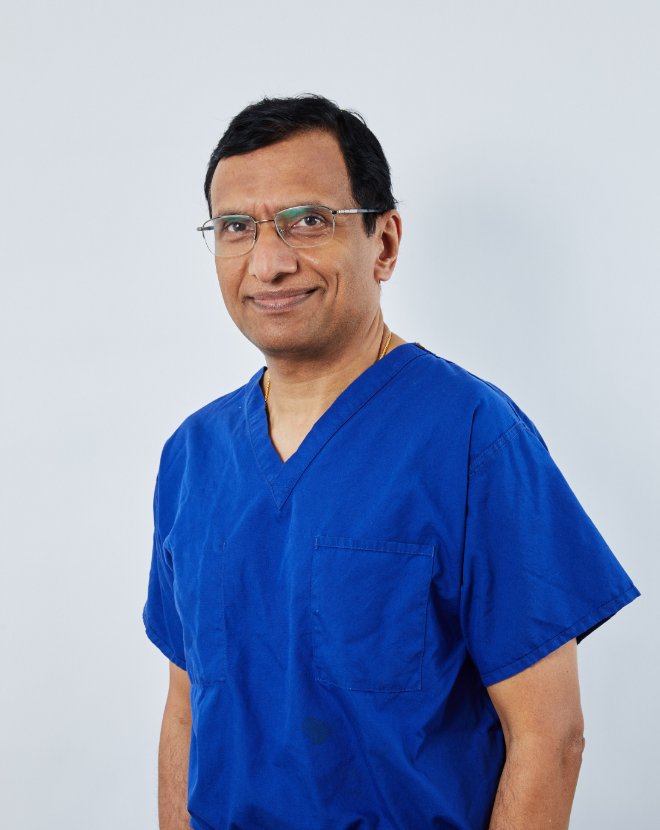from £2,950
Hernia repair specialist Mr Prasad with patient Mike Toolan
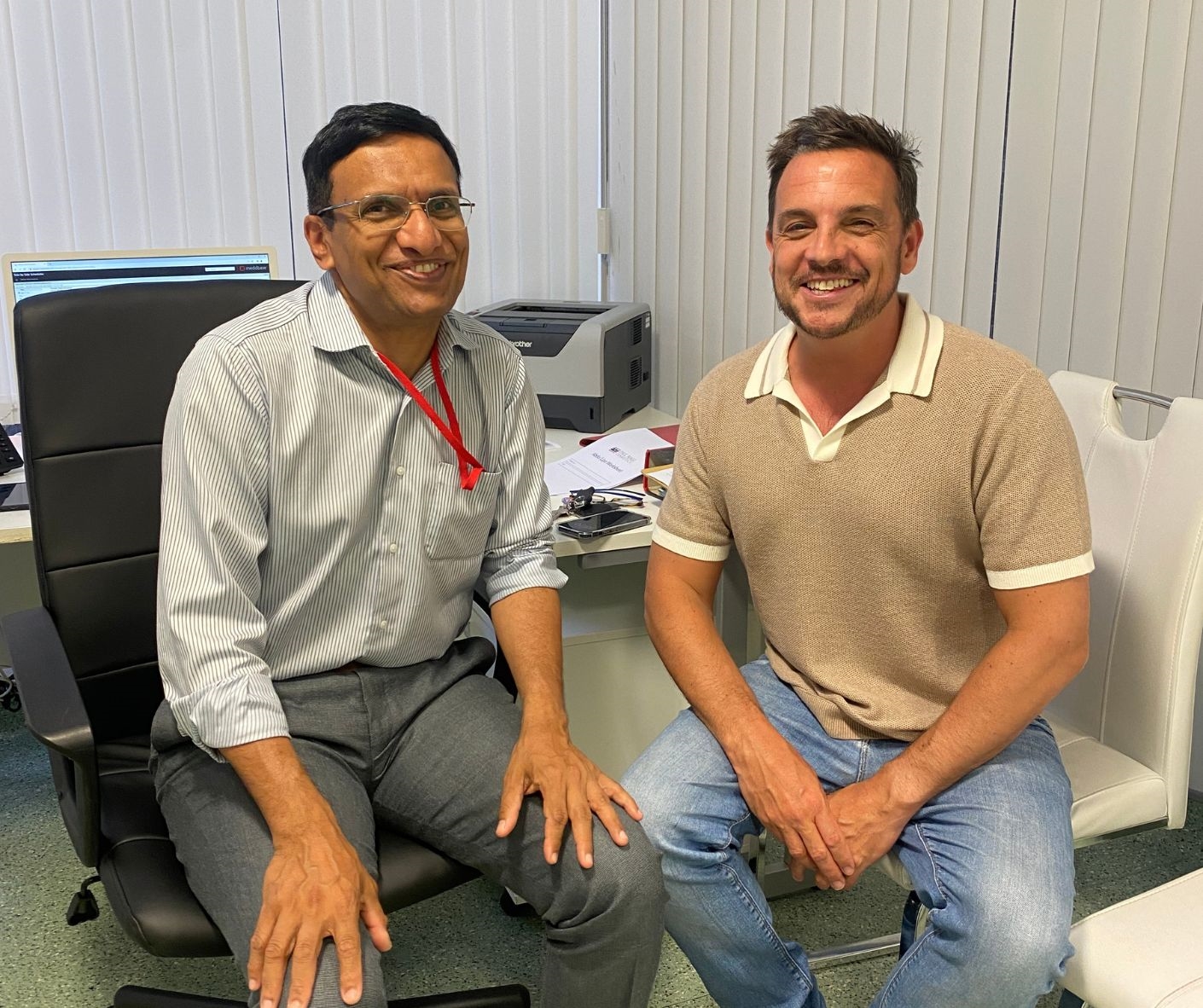
Private Hernia Surgery
- Self Pay or Insurance
- Surgery within 2-4 weeks
- 2 Years 0% Finance
- No NHS Referral Required
- Fixed Price Includes Aftercare
- Fast relief. Minimal downtime
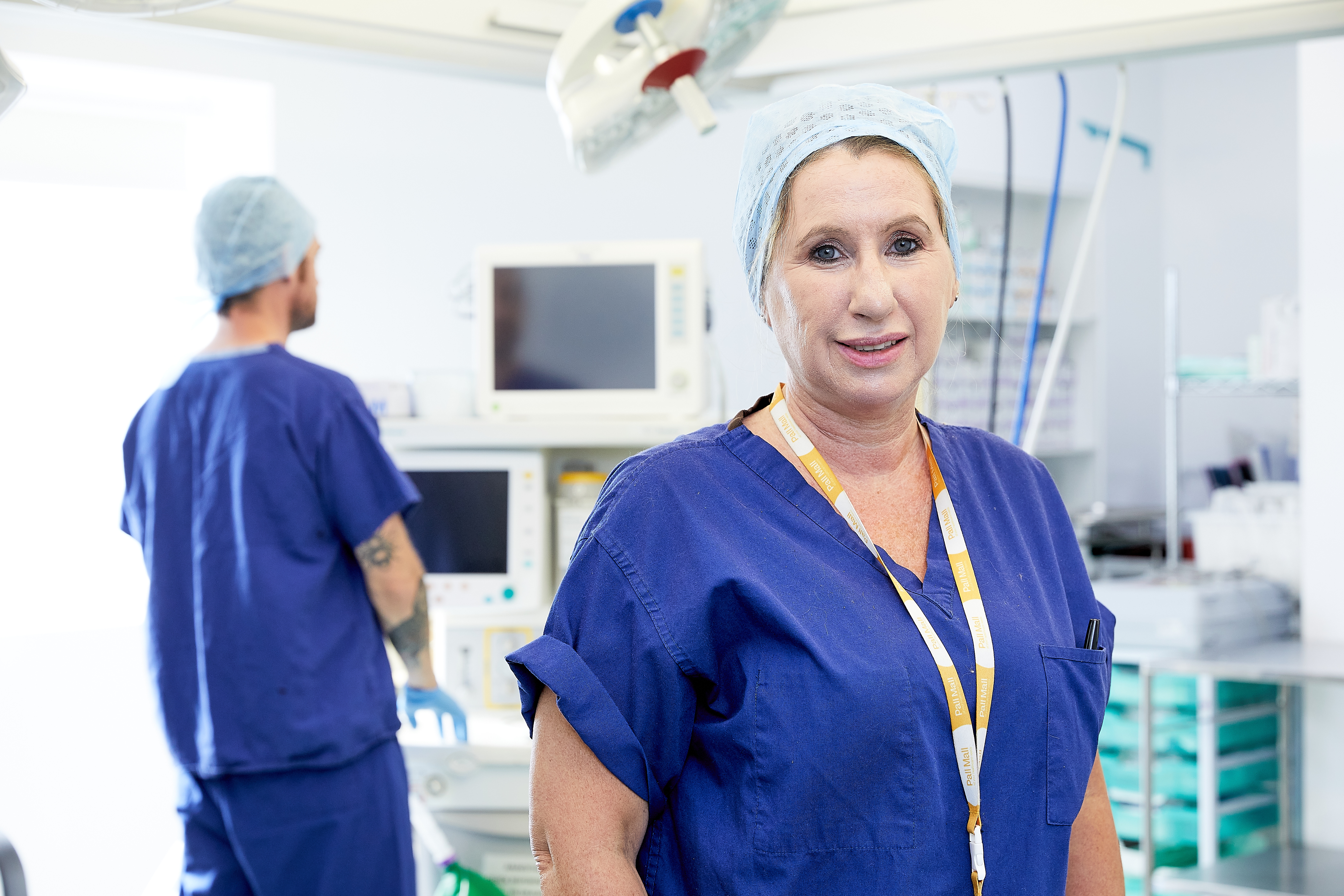
Your hernia treatment with Pall Mall - What to expect
From your first call or email, we are with you every step of the way. Whether you're still researching hernia repair surgery and would like more information or you're ready to meet a surgeon to see what results you can achieve, our team is here to help.
With fast access to tests and treatments, we can help relieve your symptoms and have you feeling better than ever in no time.
Speedy Consultation
If you are keen to learn more and see what Pall Mall can do for you, we will arrange a private consultation with a surgeon that lasts around 20 to 45 minutes.
During this time, your surgeon will carefully examine the affected area and diagnose if you have a hernia or not, as well as which type. They will be able to explain what causes hernias and ask a few questions about your lifestyle, as well as discussing what you'd like to achieve through treatment.
Our team of experts have wide experience in performing hernia surgical repair and will create a treatment and recovery plan that is suited to you and your needs.
Your surgeon may also talk to you about the best anaesthetic choice during surgery. This might include a general anaesthetic (that puts you to sleep) or a local anaesthetic (you would be awake but can’t feel any sensation in your abdomen).
The best possible aftercare
At Pall Mall, we want you to feel reassured that you are receiving the best-quality treatment, care, and results. That includes aftercare.
We provide the highest levels of hygiene and patient care for a comfortable and worry-free experience. Plus, having our own private hospital means our diverse team of expert surgeons and nurses are all under our supervision.
Following your hernia repair surgery, you may require further monitoring. While the majority of patients are able to go home on the same day of their operation, some may need to stay overnight. You will have a team on hand to support you in any way we can, whenever or whatever you need. We understand that staying in hospital can be daunting. With your own private room, en suite facilities, and a TV, you can enjoy a home-away-from-home.
What to expect after the operation
It's perfectly normal to feel sore after your hernia repair - you will be provided with medication to help alleviate this pain by our care team. After any procedure, you may be given additional medications such as painkillers to take home. The doses, times to take the medications and other instructions around these medications will be explained to you in detail before discharge.
The surgical repair of hernias will leave some scarring - the extent of which will depend on the type of operation as well as the location and condition of the hernia itself. As a minimally invasive procedure, laparoscopic repair - or keyhole surgery - tends to reduce the level of scarring. It is also normal to experience some bruising and swelling around the repair site.
If you had laparoscopic hernia repair surgery, you may experience pain in your shoulder. This will only usually last about a day or two.
We will always ensure you have the best possible aftercare and your consultant will schedule a follow-up appointment to check you are healing correctly - this will be discussed with you on discharge.
Recovery time and professional advice
Patients who choose to have their repair under local anaesthetic typically recover much quicker than patients who choose general anaesthetic.
Recovery time will vary from case to case: the standard time frame is between 4 and 6 weeks before you are back to full fitness. Always follow your consultant's advice and be sure to raise any questions about your post-surgery recovery with them.
The recommended recovery time for other activities is listed below:
- Gym/swimming – 4 to 6 weeks
- Sexual activities – 2 to 3 weeks
- Flying – 2 weeks (or no restrictions if under local anaesthetic)
- Shower – 48 hours
- Driving – 10 days
Along with the support and guidance of our professional team, understanding how to take care of yourself at home is critical. Below are some simple steps that you can follow:
- Rest up - Getting enough sleep is crucial for your recovery.
- Easy movement - Once the pain has eased and you feel able, slowly build up to a walk a day (walking boosts your blood flow and can help to prevent constipation). Avoid heavy lifting of any kind, whether that's the weekly food shop, weights at the gym, a heavy briefcase, or a child.
- Avoid strenuous activity - The expression 'don't run before you can walk' has never been more relevant. Please stay away from any strenuous activities for at least 6 weeks.
- Returning to work - Although most patients are able to return to work within 1 to 2 weeks post-surgery, everyone is different and this is something you should discuss at your consultation.
- Showering - You are able to shower between 24 and 48 hours of your surgery, as long as your consultant has given the go-ahead. Make sure to gently pat the incision dry and avoid baths for the first 2 weeks.
- Diet - You will be advised to stick to a liquid diet for 12 to 24 hours after surgery to keep pressure off the abdomen and intestines. While you're healing, it is a good idea to stick to softer foods, such as plain yoghurt and purees, and build up to more fibre-rich foods, such as whole-grain rice and green beans.
- Fluids - Staying hydrated is key, so drink plenty of fluids (unless your consultant has advised otherwise).
- Breathing - Gently holding your incision, or using a pillow, when you cough or take deep breaths will help to support your stomach and ease the pain. Daily breathing exercises are also beneficial and can prevent pneumonia.
0% interest and flexible finance
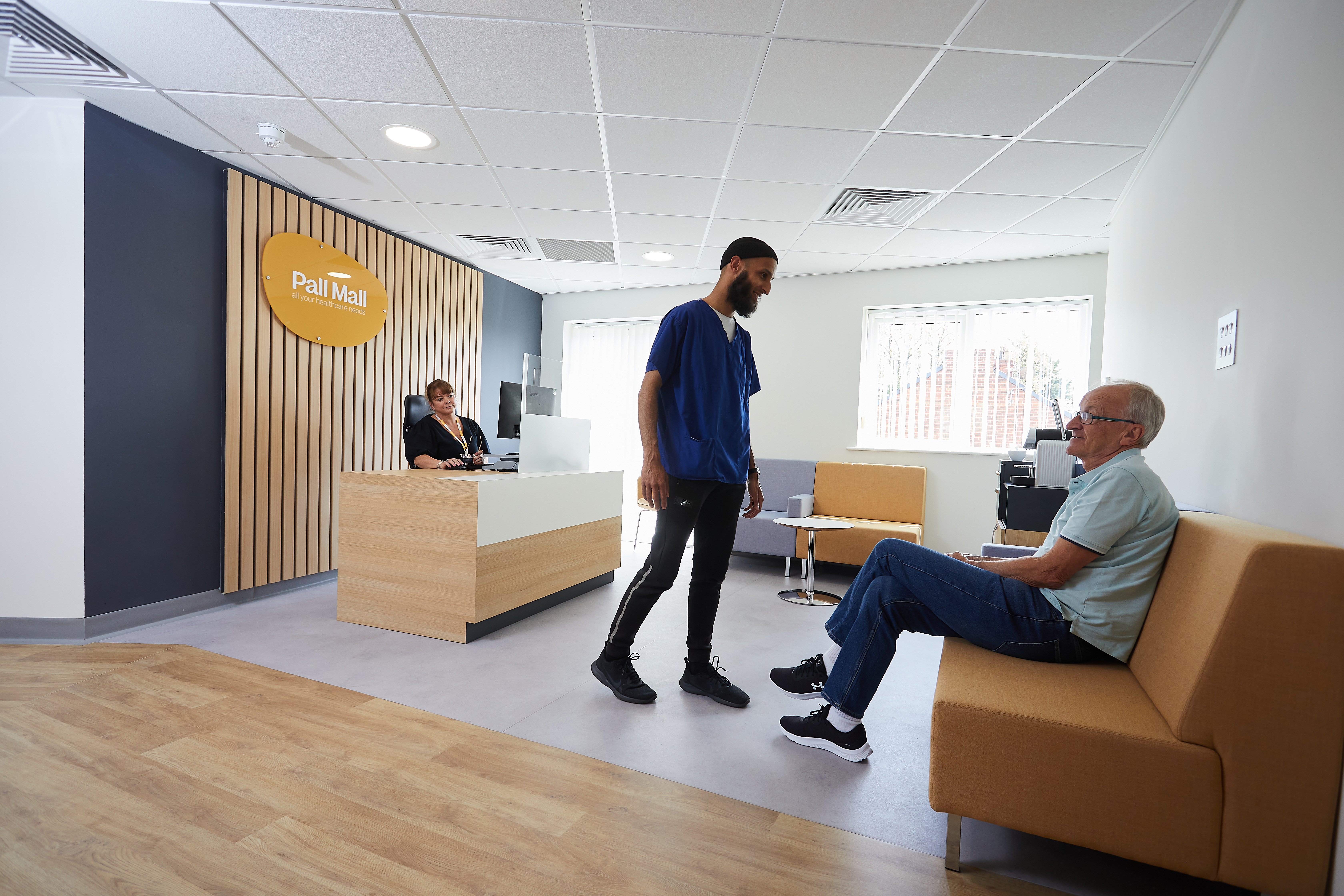
Hernia surgery finance
While there are several benefits to private healthcare, funding your hernia surgery may feel challenging.
Financial pressure can cause a significant amount of stress when you're in need of surgical treatment - the last thing anyone wants is to be worrying about money when they are suffering from an already unpleasant situation. Our aim is to make private healthcare as accessible as possible and we offer a range of flexible medical finance options to ease the pressure, enabling you to spread the cost over a longer period of time.
| 14.9% APR Representative example: | 0% APR: |
Total cost of treatment £2950 | Total cost of treatment £2950 |
Cost of deposit £500 | Cost of deposit £1475 |
The total amount of Credit £2450 | The total amount of Credit £1475 |
Total charge for credit £967.60 | Total charge for credit £0 |
Total Amount Repayable £3917.60 | Total Amount Repayable £2950 |
Repayable over 60 months | Repayable over 24 months |
Monthly payments of £56.96 | Monthly payments of £61.45 |
14.9% APR Representative | 0% APR Representative |
- 2 Years 0% Finance Available
- Pay over 3-5 years with 14.9% APR
- No hidden costs
- Flexible deposit options
Transparent treatment cost
If you are in a position to fund your repair surgery yourself, you can expect no surprises or sneaky hidden costs with our listed price. There is no additional cost for aftercare as we believe there should be no time limits on recovery.
Hernia surgery on private medical insurance
We work with all the major private medical insurance providers, including Bupa, Vitality, Allianz, and Aviva. This means you may be able to cover the cost of this service by using your medical insurance policy.
You should always contact your insurer before booking an appointment. Your insurer will check that your policy covers this service at Pall Mall Medical and can pre-authorise your treatment. You’ll need to provide us with your insurer details and pre-authorisation code when you get in touch with our team.
Financial support with your hernia surgery
You can get a free-of-charge finance quote by speaking to our friendly team. This can indicate your likely monthly costs, deposit amount and length of repayments. You will not need to register or have any credit checks performed for this.
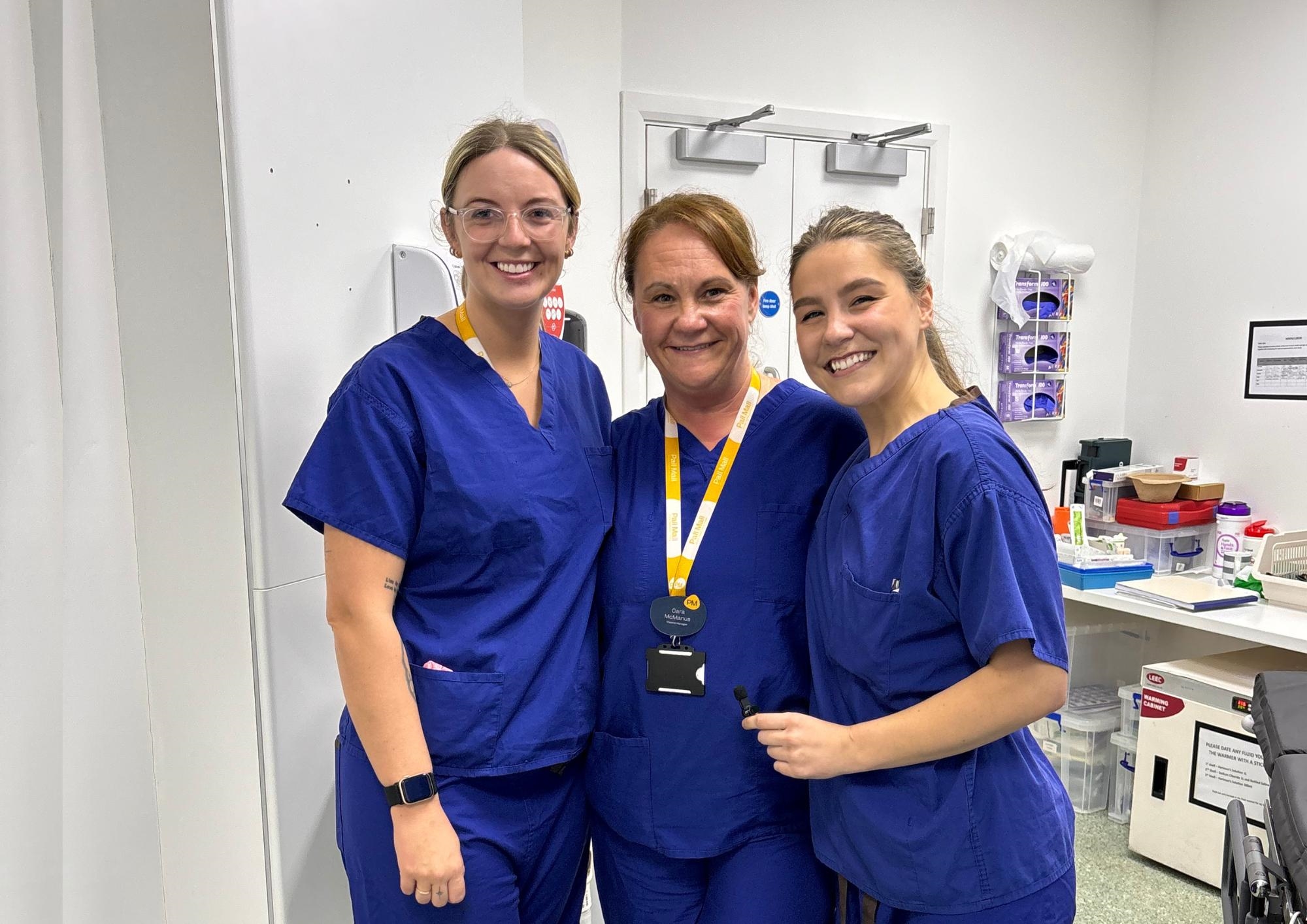
Enquire About Our Services
A member of our team will be in touch with you to discuss your requirements.
GMC registered Surgeons

What is a Hernia?
A hernia occurs when an internal organ bulges through a weak area or tear in the muscle or surrounding tissue. Most hernias develop in the abdomen (belly area) or groin, where the abdominal wall is weaker. This bulge can often be pushed back in or disappears when lying down - coughing or straining will make it more prominent.
The most common sign of a hernia is a swelling or lump, which can occur anywhere between your chest and hips. Groin hernias located in the inguinal canal can be harder to spot.
Some hernias can be symptomless. Others are more painful and can significantly impact your day-to-day life.
How common are hernias?
If you are suffering from or suspect you have a hernia then don't worry, you are not alone.
Absolutely anyone can develop a hernia and symptoms can vary greatly. Although some people are more susceptible due to being born with slightly weaker muscles, in most cases a hernia is the result of age. It can even be as simple as the overuse of a muscle or excessive straining.
Inguinal hernias are the most common type, affecting around 27% of men and 3% of women within their lifetime.
All pre-op appointments
Because all appointments are completely confidential, seeing one of our private doctors won’t affect your existing relationship with your GP, or any future care with the NHS. We won’t share or pass on any of your records and we will only contact your NHS doctor if you ask us to do so.
We have introduced online booking to make things easier for you.
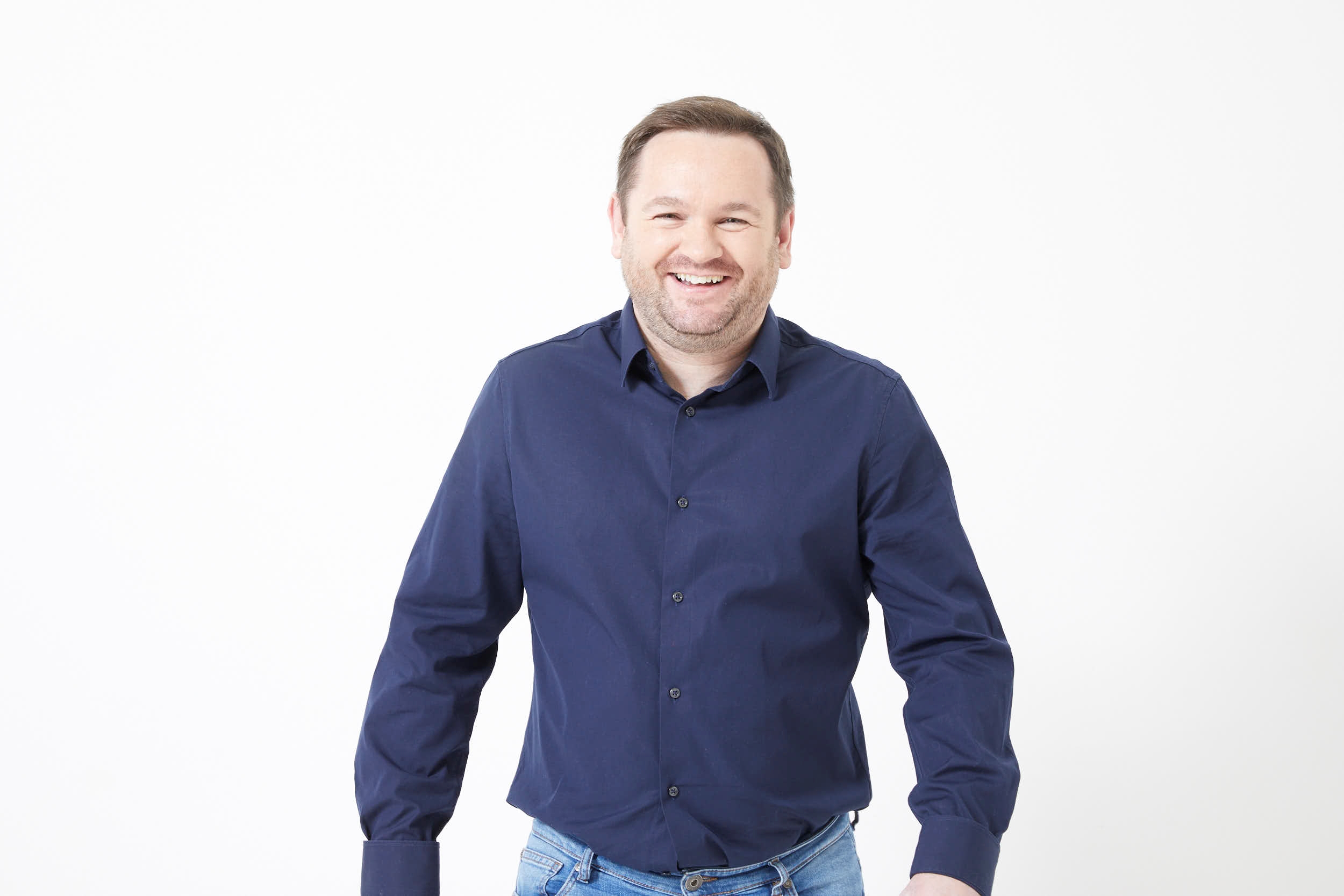
How to tell if you need hernia treatment
If you have a protruding bulge in your groin or stomach and/or are experiencing pain or discomfort in the affected area, you could have a hernia.
If the hernia is small, doesn’t appear to be growing or causes little to no pain, you may not need any immediate treatment. However, most hernias will gradually increase in size and can cause trouble later down the line.
Whether you’re experiencing chronic pain or a slight feeling of discomfort, treatment is ultimately critical to recovery and we are here to help.
Don’t ignore the symptoms. Reach out to our team today.
How serious is a hernia?
Although not all hernias are necessarily dangerous, with some causing little to no pain, they do not go away on their own and can lead to various complications if left untreated. As well as being painful and uncomfortable, we understand that hernias can cause a considerable amount of worry.
The good news? There are numerous treatment options available and nearly all hernias can be surgically repaired.
How to know if you have a strangulated hernia?
One of the more serious complications can arise when a hernia becomes trapped (incarcerated) in the abdominal wall, cutting off the blood flow to the tissue. In this instance, the hernia has become strangulated and can be life-threatening if not treated immediately.
The signs and symptoms can include:
- Nausea, vomiting, or both
- Fever
- Sudden and intensified pain
- A hernia bulge that turns red, purple, or a dark shade
- Inability to move bowels or pass gas
Hernia symptoms in children and babies
Infants can also develop hernias, with inguinal and umbilical being the most common types.
As children, especially toddlers and babies, are often unable to accurately communicate the symptoms of a hernia, it is crucial for parents to be able to recognise the signs and symptoms.
- Lump or swelling near the groin or belly button
- Pain or tenderness around the groin or belly button
- Unexplained crying or distress
- Visible bulge that becomes more prominent when straining, crying, or coughing
If you are experiencing any of the above symptoms or suspect you have a hernia, please get in touch with our dedicated team today. Phone us on 03300 27 26 51 or book an appointment by filling out our contact form.
What are the common symptoms of a hernia?
Below is a list of common signs and symptoms of a hernia. If you're in doubt, please book an appointment with us for an initial consultation.
- Visible and tender swelling is found in the groin or in the abdomen
- Pain or ache around the testicles (sometimes with swelling present)
- Discomfort inat the abdomen or groin when bending or lifting
- Heavy ache or feeling in the abdomen
- Frequent constipation or blood in stools (you shouldplease always immediately seek medical advice if you find blood in your stool)
- New pressure or weakness is felt in/at the groin
- Shooting pain in the abdomen or groin
What causes a hernia?
Hernias can be caused by a variety of factors and can either develop quickly or over a long period of time. In general, the condition occurs through a combination of muscle weakness and pressure.
In some cases, this will be the result of weaker muscles or underdeveloped tissue at birth. However, the majority of hernias form as your body ages and your muscles become increasingly more fragile, making them less able to hold tissue in place.
The most common causes of strain or muscle weakness that can lead to a hernia are:
- Overuse of the same muscle
- Repeatedly lifting heavy objects, especially in the wrong way
- Excessive straining due to coughing, sneezing, or constipation
- Being overweight
- Poor nutritional diet
- Smoking
- Pregnancy
There are also several risk factors that can make you more vulnerable to developing a hernia, such as being born prematurely, having cystic fibrosis, or having a personal or family history of hernias.
Meet our Consultant
We put you at the heart of everything we do
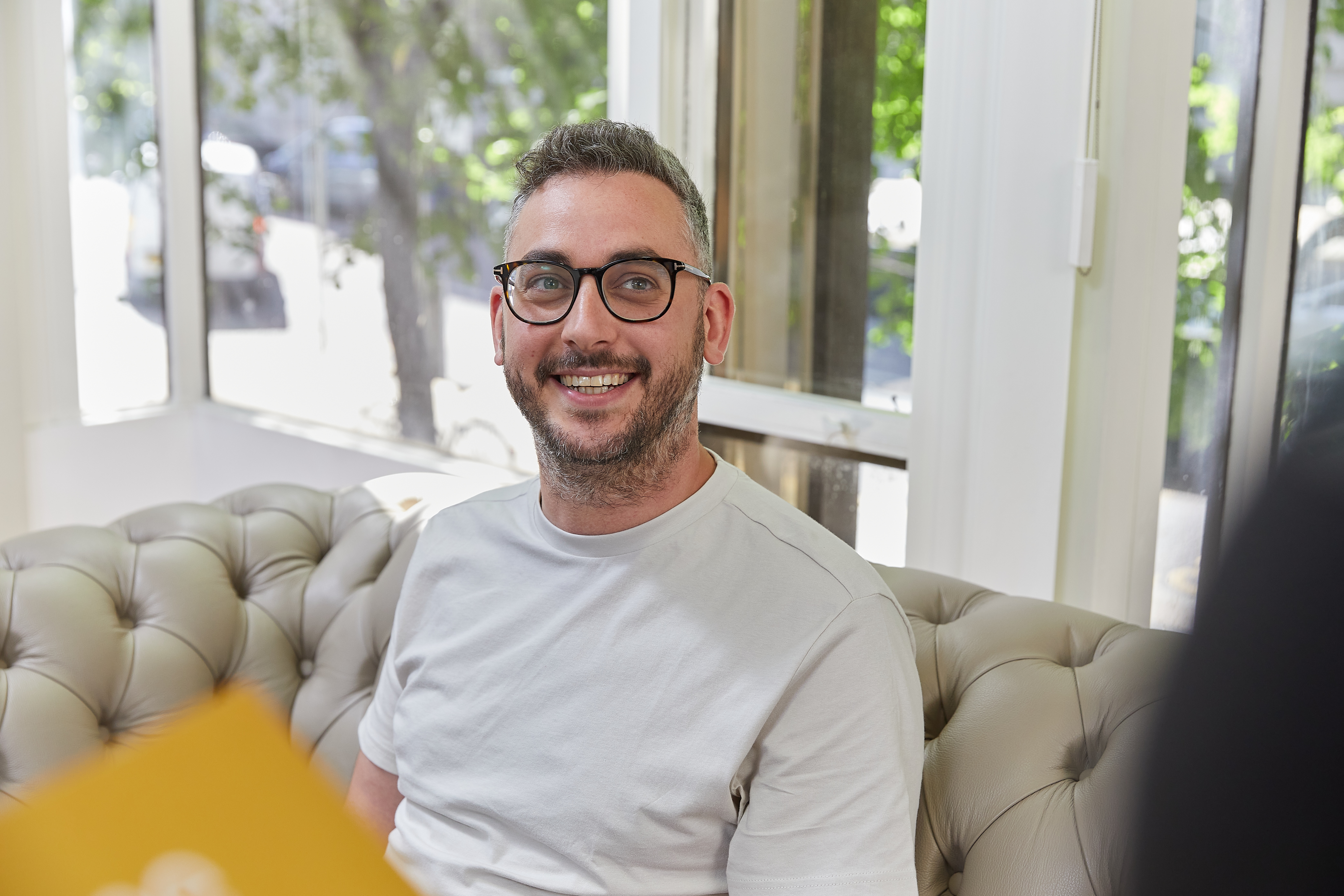
Our Surgical Approach
For the majority of cases, surgical repair is the recommended treatment for a hernia. This is a safe, routine surgical procedure and is effective for most patients.
We understand that surgery can be daunting for many, and we are here to make the process as smooth and stress-free as possible. You will be prepped for surgery at our first-class facilities and made to feel comfortable before, during and after the procedure. With years of surgical experience in hospitals across the UK and abroad, you will be in the safe hands of our leading Consultant General Surgeon.
Following the operation, your surgeon will talk you through your recovery - this will include caring for the treated area, hygiene, rest and what to avoid. It is important to follow this advice carefully as it will aid your recovery and help to prevent any complications or risk of recurrence.
What Surgery Will You Need?
There are two surgery options available at Pall Mall. We’ll advise the best option for you, depending on your individual circumstances, as well as the hernia type and location:
Open Hernia Repair Surgery
During the open hernia repair procedure, you will be put under local or general anaesthetic. Your surgeon will begin by making a single incision (cut), usually around 2.5 to 3 inches, over the hernia area and push the protruding tissue back into your abdomen.
Once satisfied that the tissue has been properly relocated, they will use repair the weak tissue either with stitches or using a synthetic mesh (which will be stitches to the muscle under your skin).
Laparoscopic hernia repair surgery
This is a less invasive procedure, shortening the recovery period and resulting in less postoperative pain than a traditional open surgery approach. Hiatal hernia surgery is one example of a repair that can be achieved using the laparoscopic approach. This involves pulling your stomach down into your abdomen and reducing the opening in your diaphragm.
If your surgeon judges that you require laparoscopic hernia repair surgery, there are a few more steps that will need to be undertaken.
Your surgeon will start by making incisions in your abdomen and inserting gas so that your abdomen and internal organs are more easily visible. A small thin tube with a light and camera (called a laparoscope) is used to transmit video to a screen so that the surgeon can clearly see inside your abdomen.
Using microsurgical tools and instruments, your surgeon will expertly move the protruding tissue back into place. Like open surgery, your abdomen wall will be reinforced with synthetic mesh. Any excess gas inside your abdomen is then released and your incision will be closed with stitches.
GMC registered Surgeons
How long is a hernia surgery?
The time it takes to complete the surgery will depend on the type of procedure, factoring in any potential risk of complication. Generally speaking, your hernia repair surgery will take around 120 minutes. The laparoscopic technique is usually quicker.
Following your surgical treatment, you will most likely be able to go home on the same day or within 24 hours. Undergoing surgery of any kind can leave you feeling hazy or groggy, especially if you've undergone general anaesthetic. We would always recommend arranging for a friend or family member to take you home and look after you post-operation. Having a cosy blanket and your favourite film lined up won't hurt either!
Returning to your usual self after general anaesthesia can take one to two days, impacting your memory, concentration and reflexes. Remember to avoid drinking, driving, operating heavy machinery and signing any legal documents during your recovery time.
General and more specific guidelines will be given to you by your consultant when you are booked for surgery and your procedure will be explained to you. The consultant anaesthetist will be involved in your case, and our patient care team will also contact you in the week running up to surgery. This is also the opportunity to ask any questions or share any concerns you may have.
Easily purchase online for simple one-off annual fee
What are the benefits of hernia repair surgery?
Hernia repair surgery is the only way to permanently treat a hernia. So, the sooner you get it repaired, the less complicated the surgery and the quicker you will heal. With Pall Mall, you will have fast access to an expert and won't have to wait weeks or even months for an appointment.
Prevent potentially life-threatening complications, such as the risk of a strangulated hernia.
- Relieve Pain
- Reduce Discomfort
- Return the herniated abdominal organs to their correct place
- Strengthen the weak muscle area
GMC registered Surgeons
What happens if a hernia is not treated?
If you suspect you have a hernia, don't play the waiting game. We recommend taking care of your hernia within the first six hours of noticing a lump or experiencing any of the previously outlined symptoms.
Leaving a hernia untreated will lead to more serious complications. Intestinal blockage, caused by the herniated bowel becoming pinched, will prevent normal waste from being passed and can cut off the blood supply to part of your intestine. This will result in infection of the intestinal wall.
An incarcerated hernia is classified as a medical emergency, occurring when part of your intestine or abdominal tissue has become trapped in the sac of the hernia. This condition will prevent you from digesting and processing food regularly, and can lead to strangulation.
We put you at the heart of everything we do
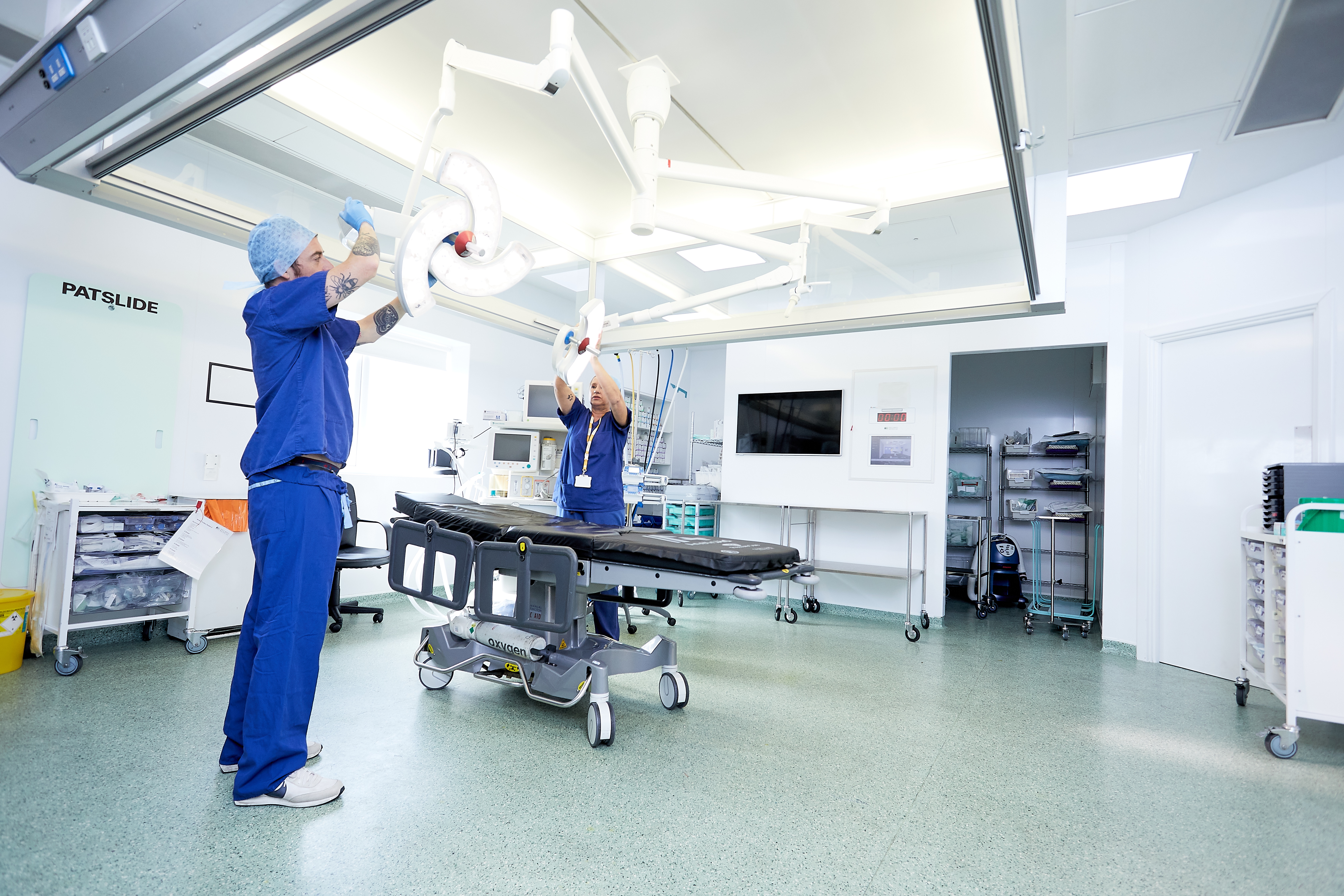
Our Treatment Facilities
As a healthcare provider owned by doctors, we are focused on delivering exceptional, end-to-end patient care that makes a difference. With three clinics conveniently located in the heart of the North West - Liverpool and Manchester city centre and Newton-le-Willows - you can book a professional hernia consultation at a time that suits you, including late nights and weekends.
Your hernia repair surgery will take place at our Pall Mall Medical Newton-le-Willows location, a state-of-the-art private hospital located between Liverpool and Manchester. Boasting an industry-leading diagnostic and surgery centre, our consultant surgeons can repair every kind of hernia, from inguinal hernia repairs to incisional hernia repairs. With no GP referral needed, we will get you treated and back to your everyday activities as soon as possible.
What you can expect from our Newton-le-Willows private hospital
- Dedicated Clinical Care Team
- CQC Registered Private Hospital
- Private Room with En Suite Facilities
- TV and free WiFi
- Fully Accessible Hospital
- State-of-the-art Theatre Facility
What sort of hernias can you repair?
Our Consultant Surgeons can repair all sorts of hernias, including inguinal, epigastric, femoral, incisional, spigelian, sportsman and ventral.
What should I do before and after my procedure?
General and more specific guidelines will be given to you by your consultant when you are booked for surgery and your procedure will be explained to you and where you will have the opportunity to ask any questions. The consultant anaesthetist that will be involved in your case and our practice manager will also contact you in the week running up to surgery.
How much time should I take off work?
Every case and patient are different and this is something that you should discuss with your consultant at your consultation and before your are booked for surgery.
When can I go home?
Depending on your procedure, most patients usually go home on the same day or the day after surgery. This will be discussed with you on the day of your procedure.
Will I need a follow up appointment?
Yes, your consultant will follow up your procedure. You will be told about your follow up appointment on discharge.
What medications should I take after my procedure?
This will be discussed with you prior to surgery. After any procedure you may be given additional medications such as pain killers to take home. The doses, times to take the medications and other instructions around these medications will be explained to you in detail before discharge.
How long will it take me to recover?
Patients who choose to have their repair under local anaesthetic typically recover much quicker than patients who choose general anaesthetic.
In terms of your recovery, you’ll be back to full fitness in 4-6 weeks.
For other activities:
- Gym/swimming – 4-6 weeks
- Sexual activities – 2-3 weeks
- Flying – 2 week (or no restrictions if under local anaesthetic)
- Swim – 4-6 weeks
- Shower – 48 hours
- Driving – 10 days
Your next steps...
If you suspect you or a loved one has a hernia, do not hesitate to get in touch. There are multiple ways that you can contact us to start your Pall Mall journey…

